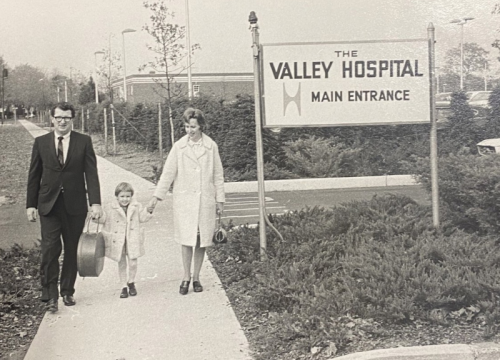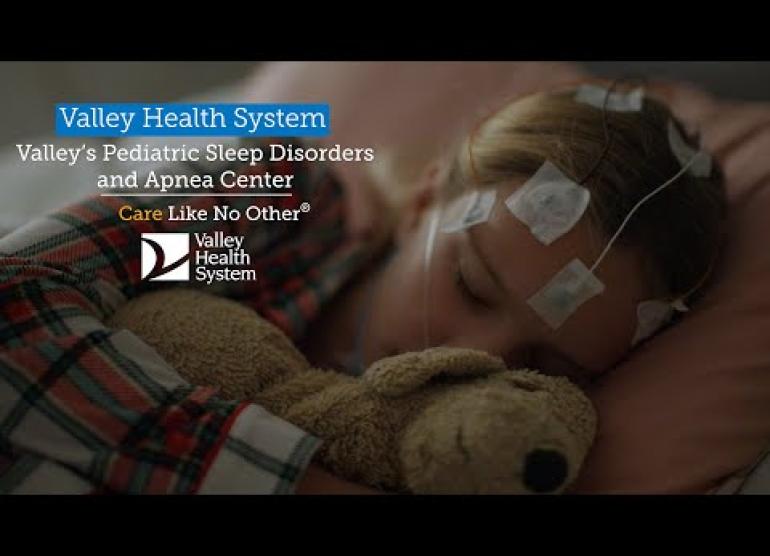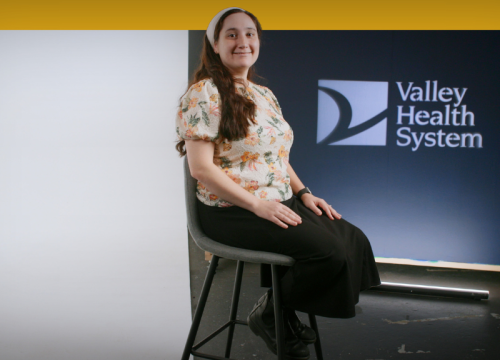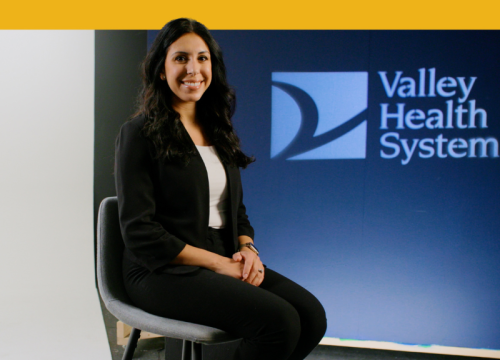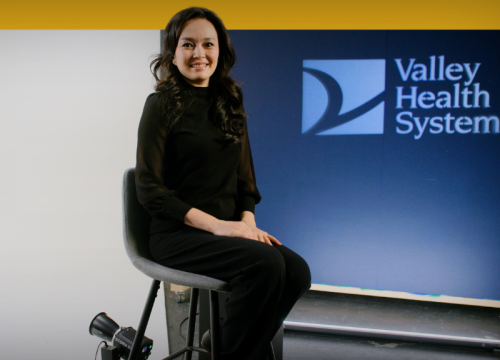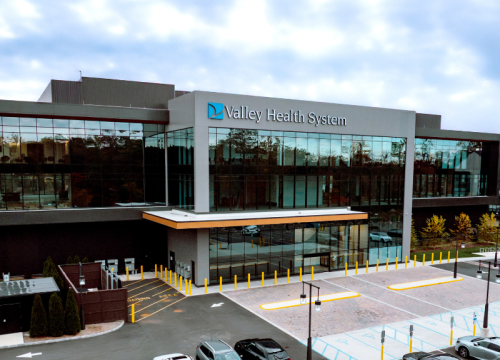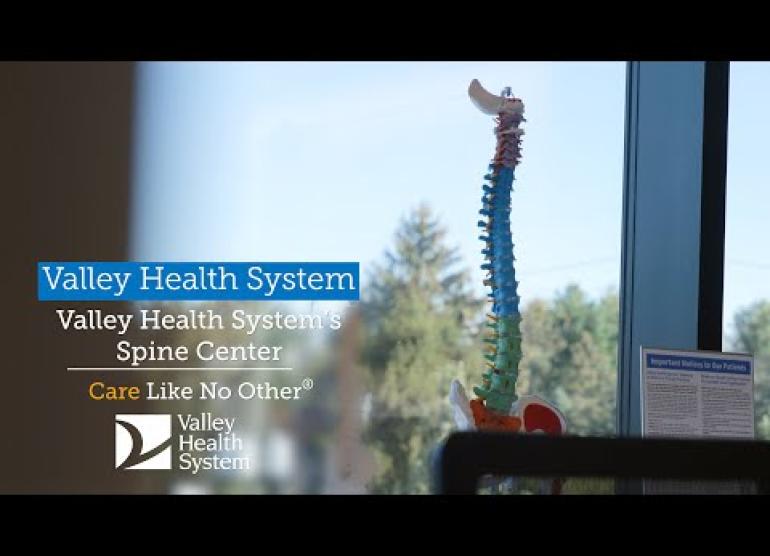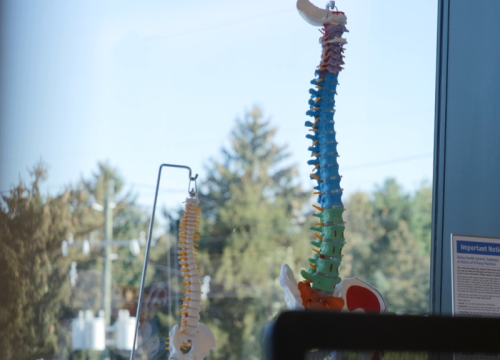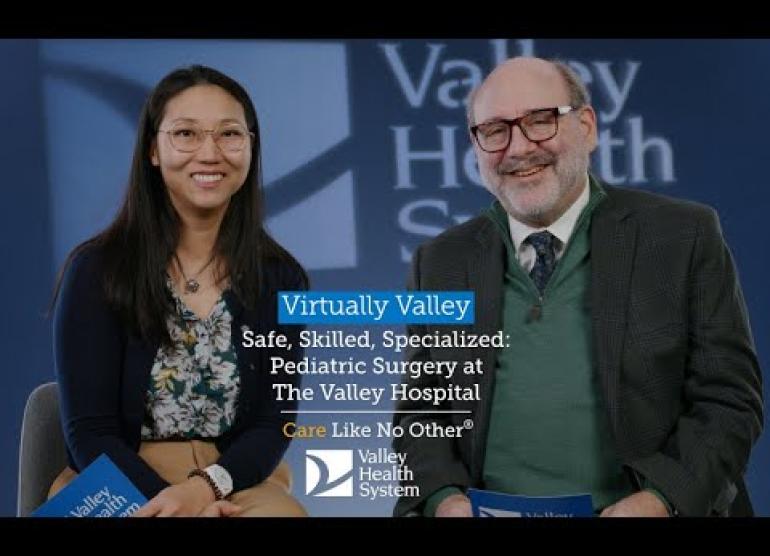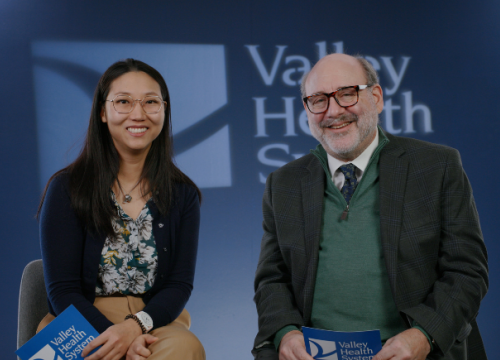Our team is here to support you if you have been diagnosed with uterine cancer.
Uterine cancers occur in the uterus. Uterine cancer is the most common form of gynecologic cancer. The most common type, endometrial cancer, starts in the lining of the uterus, called the endometrium.
The Gynecologic Oncology Program at Valley specializes in treating all forms of uterine cancer. As a woman-based team, we provide compassionate care along the way.
Uterine Cancer Symptoms
- Postmenopausal bleeding (vaginal bleeding after menopause) is the most common symptom of uterine cancer.
- Postmenopausal bleeding can be of any amount, from simple spotting to heavy vaginal bleeding. It can occur at any time after natural menopause.
- Postmenopausal bleeding should never be considered a regular occurrence, regardless of the timing or amount. It occurs as the presenting symptom of cancer in more than 95 percent of women.
Uterine Cancer Treatment at Valley
We don’t just treat your uterine cancer at Valley. We treat you as a whole person.
This starts with looking at your health, the stage of your cancer and how far the cancer has spread into your uterus. Together, we’ll discuss the best treatment options for you.
Your treatment may involve the following:
Minimally Invasive Robotic Hysterectomy
A hysterectomy, in which the uterus is removed or partially removed, is typically the most common surgical treatment for uterine cancer.
Valley’s Gynecologic Oncology Program offers robotic hysterectomy for patients with endometrial cancer. With the da Vinci® Surgical System, your gynecologic oncologist can perform the hysterectomy through tiny incisions with extraordinary precision and control.
Robotic hysterectomy offers many benefits over traditional surgery. Robotic surgery patients typically experience less pain, fewer complications, a shorter hospital stay and a quicker recovery. You can also return to your normal activities a little faster.
Medical and Radiation Therapy
In addition to surgery, your physicians may recommend hormone therapy, chemotherapy and/or radiation therapy to treat endometrial cancer. Your physicians will discuss which treatment options will best fit your situation with you.
Why Choose Valley for Endometrial & Other Uterine Cancers?
- Delivering care with compassion: The Gynecologic Oncology team believes in a holistic, team-oriented approach to care. In addition to providing the best possible care for our patients, our team prioritizes getting to know you to help you address your overall health.
- Mount Sinai partnership: Valley has partnered with the Mount Sinai Health System to provide patients with access to additional clinical trials and Mount Sinai’s nationally renowned experts in cancer care.
- Dedicated medical oncologists: Our cancer subspecialists focus on treating your cancer as effectively as possible. These experts customize your care plan using the latest advancements in chemotherapy, targeted therapy, immunotherapy, and hormone therapy.
- Fertility preservation options: Valley’s Fertility Preservation program allows younger women undergoing cancer treatment to preserve their options for future family building. Together, Valley’s fertility and cancer teams schedule fertility preservation alongside your cancer treatment. For patients who require a hysterectomy, the fertility program offers options for gestational surrogacy using your own frozen eggs.
- Multidisciplinary care through our weekly tumor board: The gold standard for cancer care involves many experts. That’s why we discuss your case weekly with our cancer experts and Mount Sinai specialists. This integrative approach allows us to create your best, personalized treatment plan.
- Access to residents’ thought leadership: Our residents bring new insights to our team that contribute to our exceptional patient care. As part of our mission, we help train the next generation of healthcare leaders committed to clinical excellence, education, and intellectual curiosity.
- Clinical trials: We offer patients opportunities to participate in uterine cancer clinical trials with the most cutting-edge treatments available. We also conduct research to advance our knowledge and care options for patients with uterine cancer.



